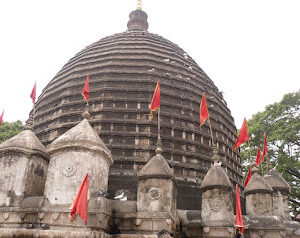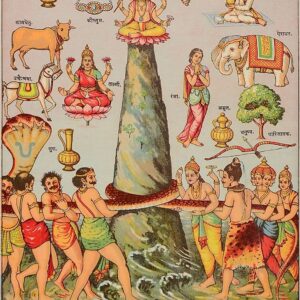Durga Puja also known as Durgotsava or Sharodotsav, is an annual Hindu festival originating in the Indian subcontinent which reveres and pays homage to the Hindu goddess Durga and is also celebrated because of Durga’s victory over Mahishasura. It is celebrated all over the world by the Hindu community but it is particularly popular and traditionally celebrated in the Indian states of West Bengal, Bihar, Assam, Tripura, Odisha, Jharkhand, Uttar Pradesh (eastern parts) and some other countries like Nepal , Bangladesh , Sri Lanka etc .Durga puja holds different names in different countries .”Dashain” is the another name for Durga puja in Nepal. The festival is observed in the Indian calendar in the month of Ashwin, which corresponds to September–October in the Gregorian calendar.Durga Puja is a ten-day festival,of which the last five are of the most significance. The puja is performed in homes and public, the latter featuring a temporary stage and structural decorations (known as pandals). The festival is also marked by scripture recitations, performance arts, revelry, gift-giving, family visits, feasting, and public processions , Melā. Durga Puja is an important festival in the Shaktism tradition of Hinduism. Durga Puja in Kolkata has been inscribed on the Intangible cultural heritage list of UNESCO in December of 2021.
As per Hindu scriptures, the festival marks the victory of goddess Durga in her battle against the shape-shifting asura, Mahishasura. Thus, the festival epitomizes the victory of good over evil, though it is also in part a harvest festival celebrating the goddess as the motherly power behind all of life and creation. Durga Puja coincides with Navaratri and Dussehra celebrations observed by other traditions of Hinduism.
The primary goddess revered during Durga Puja is Durga but celebrations also include other major deities of Hinduism such as Lakshmi (the goddess of wealth and prosperity), Saraswati (the goddess of knowledge and music), Ganesha (the god of good beginnings), and Kartikeya (the god of war). In Bengali and Odia traditions, these deities are considered to be Durga’s children, and Durga Puja is believed to commemorate Durga’s visit to her natal home with her beloved children. The festival is preceded by Mahalaya, which is believed to mark the start of Durga’s journey to her natal home. Primary celebrations begin on the sixth day (Shasthi), on which the goddess is welcomed with rituals. The festival ends on the tenth day (Vijaya Dashami) when devotees embark on a procession carrying the worshipped clay sculpture-idols to a river, or other water body, and immerse them, symbolic of her return to the divine cosmos and her marital home with Shiva in Kailash. Regional and community variations in celebration of the festival and rituals observed exist.
Durga Puja is an old tradition of Hinduism, though its exact origins are unclear. Surviving manuscripts from the 14th—century provide guidelines for Durga Puja, while historical records suggest that royalty and wealthy families were sponsoring major Durga Puja festivities since at least the 16th-century. The prominence of Durga Puja increased during the British Raj in the provinces of Bengal, Odisha and Assam. However, in modern times, the importance of Durga Puja is more as a social and cultural festival than a religious one, wherever it is observed.
Over the years, Durga Puja has morphed into an inseparable part of Indian culture with a diverse group of people celebrating this festival in their unique way while on tradition.
अनुक्रम
1 दुर्गा के 108 नाम
2 दीर्घा
3 इन्हें भी देखें
4 सन्दर्भ
5 बाहरी कड़ियाँ
दुर्गा के 108 नाम
दुर्गा सप्तशती के अनुसार इनके 108 नाम बताये गये हैं।
1. सती : अग्नि में जल कर भी जीवित होने वाली
2. साध्वी : आशावादी
3. भवप्रीता : भगवान् शिव पर प्रीति रखने वाली
4. भवानी : ब्रह्मांड की निवास
5. भवमोचनी : संसार बंधनों से मुक्त करने वाली
6. आर्या देवी
8. जया : विजयी
9. आद्या : शुरूआत की वास्तविकता
10. त्रिनेत्र : तीन आँखों वाली
11. शूलधारिणी : शूल धारण करने वाली
12. पिनाकधारिणी करने वाली
13. चित्रा : सुरम्य, सुन्दर
14. चंद्रघण्टा : प्रचण्ड स्वर से घण्टा नाद करने वाली, घंटे की आवाज निकालने वाली
15. महातपा : भारी तपस्या करने वाली
16. मन : मनन- शक्ति
17. बुद्धि : सर्वज्ञाता
18. अहंकारा : अभिमान करने वाली
19. चित्तरूपा : वह जो सोच की अवस्था में है
20. चिता : मृत्युशय्या
21. चिति : चेतना
22. सर्वमन्त्रमयी : सभी मंत्रों का ज्ञान रखने वाली
23. सत्ता : सत्-स्वरूपा, जो सब से ऊपर है
24. सत्यानन्दस्वरूपिणी : अनन्त आनंद का रूप
25. अनन्ता : जिनके स्वरूप का कहीं अन्त नहीं
26. भाविनी : सबको उत्पन्न करने वाली, खूबसूरत औरत
27. भाव्या : भावना एवं ध्यान करने योग्य
28. भव्या : कल्याणरूपा, भव्यता के साथ
29. अभव्या : जिससे बढ़कर भव्य कुछ नहीं
30. सदागति : हमेशा गति में, मोक्ष दान
31. शाम्भवी : शिवप्रिया, शंभू की पत्नी
32. देवमाता : देवगण की माता
33. चिन्ता : चिन्ता
34. रत्नप्रिया : गहने से प्यार
35. सर्वविद्या : ज्ञान का निवास
36. दक्षकन्या : दक्ष की बेटी
37. दक्षयज्ञविनाशिनी : दक्ष के यज्ञ को रोकने वाली
38. अपर्णा : तपस्या के समय पत्ते को भी न खाने वाली
39. अनेकवर्णा : अनेक रंगों वाली
40. पाटला : लाल रंग वाली
41. पाटलावती : गुलाब के फूल या लाल परिधान या फूल धारण करने वाली
42. पट्टाम्बरपरीधाना : रेशमी वस्त्र पहनने वाली
43. कलामंजीरारंजिनी : पायल को धारण करके प्रसन्न रहने वाली
44. अमेय : जिसकी कोई सीमा नहीं
45. विक्रमा : असीम पराक्रमी
46. क्रूरा : दैत्यों के प्रति कठोर
47. सुन्दरी : सुंदर रूप वाली
48. सुरसुन्दरी : अत्यंत सुंदर
49. वनदुर्गा : जंगलों की देवी, बनशंकरी अथवा शाकम्भरी
50. मातंगी : मतंगा की देवी
51. मातंगमुनिपूजिता : बाबा मतंगा द्वारा पूजनीय
52. ब्राह्मी : भगवान ब्रह्मा की शक्ति
53. माहेश्वरी : प्रभु शिव की शक्ति
54. इंद्री : इन्द्र की शक्ति
55. कौमारी : किशोरी
56. वैष्णवी : अजेय
57. चामुण्डा : चंड और मुंड का नाश करने वाली
58. वाराही : वराह पर सवार होने वाली
59. लक्ष्मी : सौभाग्य की देवी
60. पुरुषाकृति : वह जो पुरुष धारण कर ले
61. विमिलौत्त्कार्शिनी : आनन्द प्रदान करने वाली
62. ज्ञाना : ज्ञान से भरी हुई
63. क्रिया : हर कार्य में होने वाली
64. नित्या : अनन्त
65. बुद्धिदा : ज्ञान देने वाली
66. बहुला : विभिन्न रूपों वाली
67. बहुलप्रेमा : सर्व प्रिय
68. सर्ववाहनवाहना : सभी वाहन पर विराजमान होने वाली
69. निशुम्भशुम्भहननी : शुम्भ, निशुम्भ का वध करने वाली
70. महिषासुरमर्दिनि : महिषासुर का वध करने वाली
71. मधुकैटभहंत्री : मधु व कैटभ का नाश करने वाली
72. चण्डमुण्ड विनाशिनि : चंड और मुंड का नाश करने वाली
73. सर्वासुरविनाशा : सभी राक्षसों का नाश करने वाली
74. सर्वदानवघातिनी : संहार के लिए शक्ति रखने वाली
75. सर्वशास्त्रमयी : सभी सिद्धांतों में निपुण
76. सत्या : सच्चाई
77. सर्वास्त्रधारिणी : सभी हथियारों को धारण करने वाली
78. अनेकशस्त्रहस्ता : हाथों में कई हथियार धारण करने वाली
79. अनेकास्त्रधारिणी : अनेक हथियारों को धारण करने वाली
80. कुमारी : सुंदर किशोरी
81. एककन्या : कन्या
82.शोरी: जवान लड़की
83. युवती : नारी
84. यति : तपस्वी
85. अप्रौढा : जो कभी पुराना ना हो
86. प्रौढा : जो पुराना है
87. वृद्धमाता : शिथिल
88. बलप्रदा : शक्ति देने वाली
89. महोदरी : ब्रह्मांड को संभालने वाली
90. मुक्तकेशी : खुले बाल वाली
91. घोररूपा : एक भयंकर दृष्टिकोण वाली
92. महाबला : अपार शक्ति वाली
93. अग्निज्वाला : मार्मिक आग की तरह
94. रौद्रमुखी : विध्वंसक रुद्र की तरह भयंकर चेहरा
95. कालरात्रि : काले रंग वाली
96. तपस्विनी : तपस्या में लगे हुए
97. नारायणी : भगवान नारायण की विनाशकारी रूप
98. भद्रकाली : काली का भयंकर रूप
99. विष्णुमाया : भगवान विष्णु की माया
100. जलोदरी : ब्रह्मांड में निवास करने वाली
101. शिवदूती : भगवान शिव की राजदूत
102. करली : हिंसक
103. अनन्ता : विनाश रहित
104. परमेश्वरी : प्रथम देवी
105. कात्यायनी : ऋषि कात्यायन द्वारा पूजनीय
106. सावित्री : सूर्य की बेटी
107. प्रत्यक्षा : वास्तविक
108. ब्रह्मवादिनी : वर्तमान में हर जगह वास करने वाली
Sequence
1 108 names of Durga
2 gallery
3 See also
4 references
5 external links
108 names of Durga
According to Durga Saptashati, 108 names have been mentioned.
1. Sati: One who remains alive even after being burnt in fire.
2. Sadhvi: Optimist
3. Bhavapreeta: One who has love for Lord Shiva.
4. Bhavani: Abode of the Universe
5. Bhavamochani: One who frees one from the bondages of the world.
6. Arya Devi
8. Jaya: Victorious
9. Aadya: The Reality of Beginnings
10. Trinetra: One with three eyes
11. Shooldharini: One who holds a prong
12. Pinakdharini doer
13. Chitra: Picturesque, beautiful
14. Chandraghanta: One who rings the bell loudly, one who makes the sound of the bell.
15. Mahatapa: One who performs severe penance
16. Mind: Power of contemplation
17. Wisdom: Omniscient
18. Ego: Arrogant
19. Chittarupa: One who is in the state of thinking
20. Pyre: Deathbed
21. Chiti: Consciousness
22. Sarvamantramayi: One who has knowledge of all mantras.
23. Being: Sat-Swarupa, which is above all
24. Satyanand Swarupini: Form of eternal bliss
25. Ananta: Whose form has no end
26. Bhavini: The one who gives birth to everyone, the beautiful woman.
27. Bhaavya: Feeling and worthy of meditation
28. Bhavya: Kalyanarupa, with grandeur
29. Abhavya: There is nothing more grand than this.
30. Sadagati: Always in motion, giving salvation
31. Shambhavi: Shivpriya, Shambhu’s wife.
32. Devmata: Mother of the gods
33. Worry: Worry
34. Ratnapriya: Love of jewelry
35. Sarvavidya: Abode of knowledge
36. Dakshananya: Daughter of Daksh
37. Dakshayagyavinashini: One who stops Daksh’s yagya.
38. Aparna: One who does not eat even a leaf during penance.
39. Anekvarna: Having many colors
40. Patla: Red colored
41. Patlavati: One who wears roses or red clothes or flowers.
42. Pattambar Paridhana: One who wears silk clothes
43. Kalamanjiraranjini: One who remains happy wearing anklets.
44. Ameya: One who has no limits
45. Vikrama: Infinitely mighty
46. Cruel: Harsh towards demons
47. Sundari: Beautiful
48. Surasundari: Very beautiful
49. Vanadurga: Goddess of forests, Banashankari or Shakambhari.
50. Matangi: Goddess of Matanga
51. Matangamunipujita: Worshiped by Baba Matanga.
52. Brahmi: Power of Lord Brahma
53. Maheshwari: Power of Lord Shiva
54. Indri: Power of Indra
55. Kumari: Teenager
56. Vaishnavi: Invincible
57. Chamunda: Destroyer of Chand and Munda.
58. Varahi: One who rides on Varaha
59. Lakshmi: Goddess of good fortune
60. Purushakriti: One who assumes the role of a man
61. Vimilottkarshini: One who gives pleasure
62. Gyana: Full of knowledge
63. Action: Happening in every work
64. Nitya: Eternal
65. Buddhida: Giver of knowledge
66. Bahula: Having different forms
67. Bahulprema: All beloved
68. Sarvvahanvahana: One who sits on all vehicles
69. NishumbhaShumbhahanani: Shumbha, the one who killed Nishumbha.
70. Mahishasurmardini: The one who killed Mahishasura.
71. Madhukatbhahantri: Destroyer of Madhu and Kaitabh.
72. Chandamunda Vinashini: The one who destroys Chanda and Mund.
73. Sarvasuravinasha: Destroyer of all demons
74. Sarvadanavaghatini: One who has the power to destroy
75. Sarvashastramayi: Adept in all principles
76. Satya: Truth
77. Sarvastradharini: One who wields all weapons.
78. Anekshastrahasta: One who holds many weapons in her hands
79. Anekastradharini: One who wields many weapons.
80. Kumari: Beautiful teenager
81. Single Girl: Girl
82.Shori: Young Girl
83. Girl: Woman
84. Yeti: Ascetic
85. Apraudha: One who never grows old
86. Mature: One who is old
87. Old Mother: Lax
88. Balprada: One who gives strength
89. Mahodari: The one who takes care of the universe
90. Muktkeshi: One with open hair
91. Ghorrupa: One with a fierce outlook
92. Mahabala: One with immense power
93. Agnijwala: Like a poignant fire
94. Raudramukhi: Fierce face like the destroyer Rudra.
95. Kalratri: Black colored
96. Tapaswini: Engaged in penance
97. Narayani: Destructive form of Lord Narayana
98. Bhadrakali: Fierce form of Kali
99. Vishnumaya: Maya of Lord Vishnu
100. Jalodari: One who resides in the universe
101. Shivduti: Ambassador of Lord Shiva
102. Karli: Violent
103. Ananta: Without destruction
104. Parameshwari: First Goddess
105. Katyayani: Worshiped by sage Katyayana.
106. Savitri: Daughter of Surya
107. Pratyaksha: Real
108. Brahmavadini: Presently residing everywhere





![20230927_134228[326]](https://superbcollections.com/wp-content/uploads/2023/09/20230927_134228326-scaled.jpg)
![20230927_134255[325]](https://superbcollections.com/wp-content/uploads/2023/09/20230927_134255325-scaled.jpg)











Reviews
There are no reviews yet